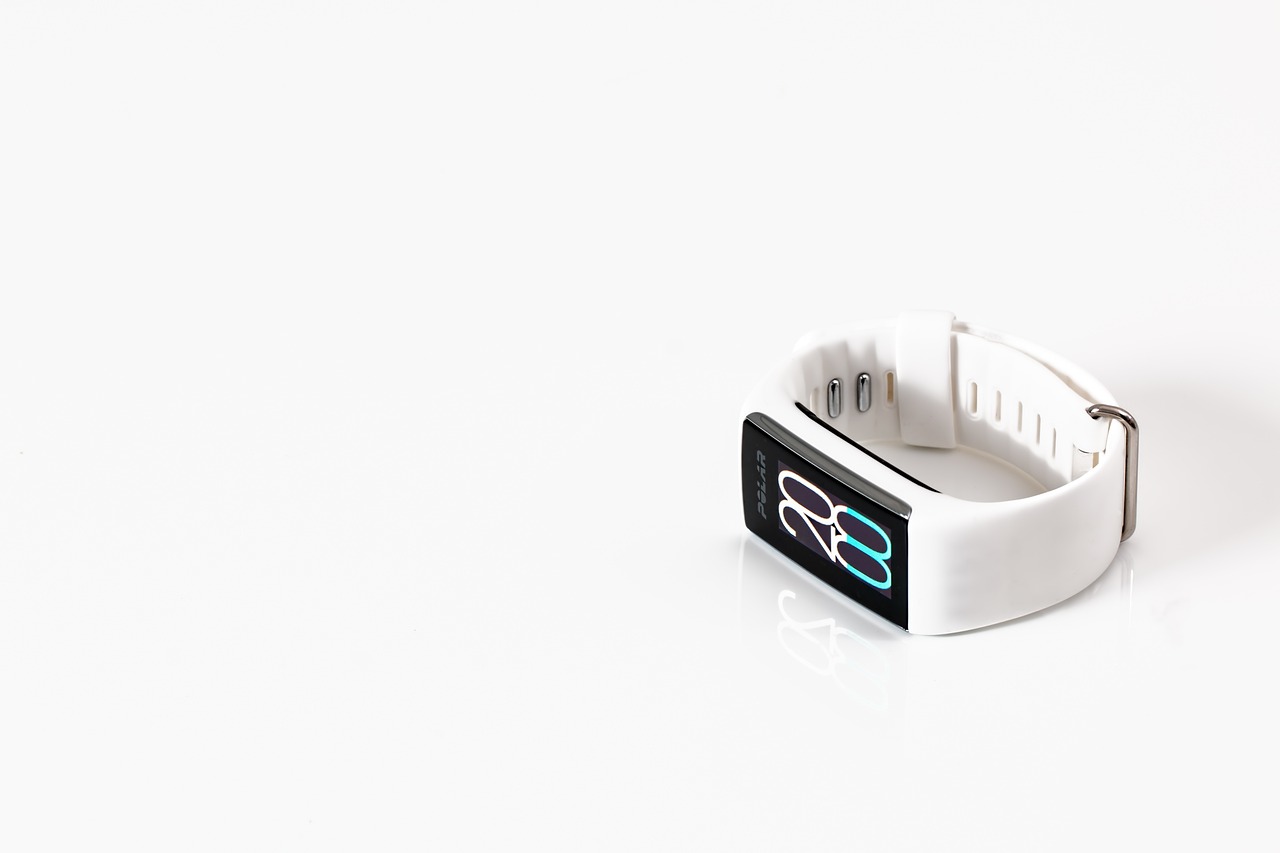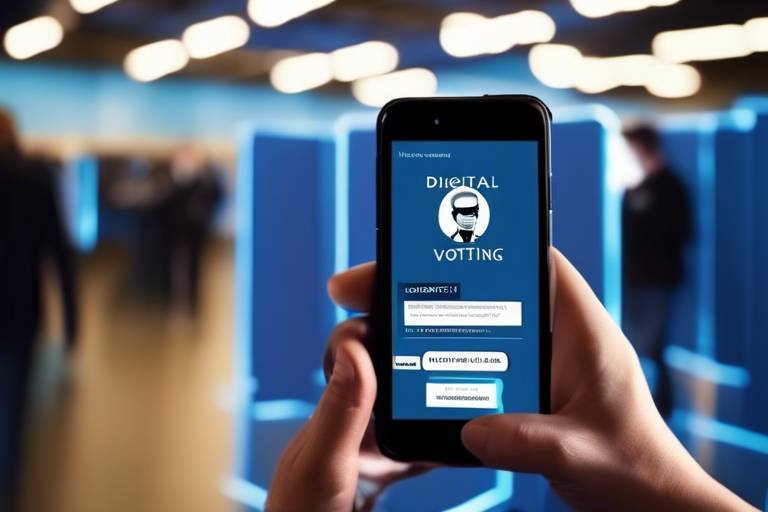Understanding Smart Contract Audits - Why They Matter
In the ever-evolving world of blockchain technology, smart contracts have emerged as game-changers, revolutionizing how we execute agreements and transactions. But, with great innovation comes great responsibility, and that's where smart contract audits step in. These audits are not just a box to tick off; they are a critical component in ensuring the security and reliability of decentralized applications. Imagine launching a rocket into space without double-checking its systems—sounds risky, right? That's exactly what deploying an unverified smart contract is like. In this article, we will dive deep into why these audits are essential, the processes involved, and how they safeguard the digital landscape.
So, what exactly are smart contracts? Think of them as digital agreements that automatically execute when predetermined conditions are met. They are like vending machines: put in your money, select your item, and voilà! The machine dispenses your snack without any human intervention. Smart contracts operate in a similar fashion, using code to enforce the terms of an agreement without the need for intermediaries. This not only saves time but also reduces costs and eliminates the potential for human error. However, just like you wouldn’t trust a vending machine that hasn’t been tested, you shouldn’t deploy smart contracts without a thorough audit.
Auditing smart contracts is akin to having a safety net before you take a leap. Before launching a new contract, it’s imperative to identify any vulnerabilities that could lead to catastrophic failures. The risks of unverified contracts are numerous, ranging from financial loss to reputational damage. A single flaw in the code can be exploited by malicious actors, leading to devastating consequences. By conducting a comprehensive audit, developers can ensure that their smart contracts are not just functional but also secure, fostering trust among users and investors alike.
Smart contracts, while revolutionary, are not immune to vulnerabilities. Some common issues that audits aim to uncover include:
- Reentrancy attacks: These occur when a malicious contract repeatedly calls a function in a way that exploits the original contract.
- Integer overflows and underflows: These happen when arithmetic operations exceed the storage capacity of the variable, leading to unintended behaviors.
Reentrancy attacks can be likened to a thief who keeps returning to a safe to steal more valuables. In the context of smart contracts, this means an attacker can exploit a function that allows for external calls, enabling them to withdraw funds multiple times before the contract updates its state. This is why rigorous auditing is essential; it helps identify and patch these vulnerabilities, ensuring that contracts can withstand such malicious attempts.
Imagine a bank account that resets to zero after reaching a certain amount due to a programming error. This is what integer overflows and underflows can do in smart contracts. These issues can lead to unexpected behaviors, potentially allowing users to withdraw more funds than they should. Audits play a pivotal role in detecting these flaws, helping developers write robust contracts that function as intended.
The audit process is not a one-size-fits-all approach; it typically involves several key steps:
- Code Review: Auditors meticulously examine the code for vulnerabilities.
- Testing: Various tests are conducted to simulate different scenarios and ensure the contract behaves as expected.
- Validation: Finally, the contract is validated against best practices and industry standards.
Selecting a reputable audit firm is crucial for effective smart contract evaluation. With so many options available, it can feel overwhelming. Look for firms with a proven track record and strong credentials. Just like you wouldn’t hire a chef who burns water, you want to partner with auditors who have demonstrated their expertise in the field.
When evaluating an audit firm, consider their credentials and experience. A reliable partner should have certifications in blockchain technology and a history of successful audits. Don't hesitate to ask for case studies or examples of past work. This will give you a clearer picture of their capabilities and the quality of their audits.
Client feedback is invaluable. Before committing to an audit firm, take the time to read testimonials and reviews. Look for case studies that highlight the firm’s effectiveness in identifying vulnerabilities and how they have helped previous clients. This information can provide insights into what you can expect and help you make an informed decision.
As blockchain technology continues to evolve, so do the methods of auditing smart contracts. We are witnessing the emergence of new tools and technologies that enhance the auditing process. Automated auditing tools, for instance, can quickly analyze code for common vulnerabilities, complementing the manual review process. As the landscape changes, staying updated on these trends will be essential for developers aiming to maintain the security and reliability of their smart contracts.
Q: What is a smart contract audit?
A: A smart contract audit is a comprehensive review of a smart contract's code to identify vulnerabilities and ensure its functionality and security before deployment.
Q: Why are smart contract audits necessary?
A: They are essential for identifying potential vulnerabilities that could be exploited, thereby protecting funds and maintaining trust in the system.
Q: How often should smart contracts be audited?
A: Smart contracts should be audited before deployment and whenever significant changes are made to the code.
Q: Can automated tools replace manual audits?
A: While automated tools can assist in identifying common vulnerabilities, they cannot fully replace the nuanced understanding that human auditors bring to the process.

The Basics of Smart Contracts
Smart contracts are like the digital equivalent of a vending machine. Imagine you insert a coin, select your snack, and voilà, it drops down without any human intervention. In the world of blockchain, smart contracts operate on similar principles—they are self-executing contracts with the terms directly written into code. This means that once the conditions are met, the contract automatically executes, ensuring that everyone involved adheres to the agreed-upon rules without needing a middleman.
So, how do these nifty pieces of code work? Well, smart contracts run on blockchain technology, which provides a decentralized and immutable ledger. This means that once a contract is deployed, it cannot be altered, ensuring transparency and trust among all parties. The beauty of smart contracts lies in their ability to automate transactions, reducing the need for intermediaries and minimizing the potential for fraud. For instance, in real estate transactions, a smart contract can automatically transfer ownership once payment is confirmed, streamlining the entire process.
Furthermore, the benefits of using smart contracts are numerous:
- Efficiency: By automating processes, smart contracts significantly reduce the time it takes to complete transactions.
- Cost-Effective: Eliminating intermediaries means lower fees and costs associated with traditional contract execution.
- Security: With cryptographic security, smart contracts are less susceptible to hacking and fraud.
- Accuracy: Automated execution minimizes human error, ensuring that transactions are carried out precisely as intended.
However, it's essential to grasp that while smart contracts offer exciting prospects, they are not without their challenges. For instance, the code must be written flawlessly, as any bugs or vulnerabilities can lead to catastrophic failures. This is where the importance of auditing comes into play, ensuring that these contracts are secure before they are deployed. In essence, smart contracts represent a paradigm shift in how we perceive agreements and transactions, making them not only more efficient but also more trustworthy in the rapidly evolving digital landscape.
- What is a smart contract? A smart contract is a self-executing contract with the terms of the agreement directly written into code.
- How do smart contracts work? They operate on blockchain technology, automatically executing transactions when predetermined conditions are met.
- What are the benefits of smart contracts? They offer efficiency, cost-effectiveness, security, and accuracy in transactions.
- What are the risks associated with smart contracts? Risks include coding errors, vulnerabilities, and the need for thorough audits to ensure security.

The Importance of Auditing
In the fast-paced world of blockchain technology, the significance of smart contract auditing cannot be overstated. With the potential to revolutionize industries, smart contracts bring with them a unique set of challenges and risks. Just like any technological innovation, they need to be thoroughly vetted to ensure their security and reliability. Imagine building a house without checking the foundation; it could lead to catastrophic results. Similarly, deploying a smart contract without an audit can expose users and developers to significant vulnerabilities.
Auditing smart contracts is crucial for a multitude of reasons. First and foremost, it helps identify vulnerabilities before they can be exploited. The blockchain is often touted as immutable and secure, but this does not mean that it is invulnerable. A single flaw in the code can lead to devastating financial losses or, worse, a complete loss of trust in the application. In fact, many high-profile hacks in the crypto space were due to unverified contracts. By conducting a comprehensive audit, developers can catch these vulnerabilities early, significantly reducing the risk of exploitation.
Moreover, audits play a vital role in establishing trust and credibility within the blockchain ecosystem. Users are more likely to engage with a platform that has undergone rigorous auditing. It’s akin to a restaurant receiving a health inspection; patrons feel more secure dining there knowing that the establishment meets safety standards. In the same vein, a well-audited smart contract serves as a badge of honor, signifying that the project is committed to transparency and security.
To illustrate the risks of unverified contracts, consider the following common vulnerabilities that audits aim to uncover:
- Reentrancy Attacks: These occur when a contract calls another contract that calls back into the original contract before the first invocation is complete.
- Integer Overflows and Underflows: These can lead to unexpected behavior when calculations exceed the maximum or minimum limits of data types.
- Access Control Issues: Flaws in permissions can allow unauthorized users to manipulate the contract.
By auditing for these vulnerabilities, developers can ensure that their smart contracts operate as intended, providing a safer environment for users. The auditing process typically involves a detailed examination of the code, testing various scenarios, and validating the logic to ensure that everything functions correctly. This meticulous approach not only enhances security but also boosts the overall quality of the smart contract.
In conclusion, the importance of smart contract auditing cannot be ignored in today’s digital landscape. It is a fundamental step in the development process that safeguards against potential threats, builds user confidence, and ultimately contributes to the long-term success of blockchain applications. As we continue to navigate this innovative terrain, the role of audits will only become more critical in fostering a secure and trustworthy digital ecosystem.

When diving into the world of smart contracts, it's essential to understand that, like any software, they are not immune to vulnerabilities. These weaknesses can lead to significant financial losses and undermine the trust in blockchain technology. The most common types of vulnerabilities that auditors look for include reentrancy attacks, integer overflows and underflows, and access control issues. Each of these vulnerabilities presents unique challenges that can jeopardize the integrity of smart contracts.
To put it simply, think of smart contracts as automated vending machines. Just like a vending machine can malfunction if the coins aren't counted correctly or if someone tries to trick it into giving them more snacks than they paid for, smart contracts can also be exploited if they have coding flaws. This is where audits come into play, acting as a thorough inspection to ensure everything is functioning correctly.
Let's delve into some of these vulnerabilities:
- Reentrancy Attacks: This is one of the most notorious vulnerabilities in smart contracts. In a reentrancy attack, a malicious actor exploits the contract's functions by repeatedly calling them before the previous execution is completed. This can lead to unintended consequences, such as draining funds from the contract. Imagine a thief who keeps returning to a bank vault to withdraw money before the alarm is triggered. Without a robust audit, these vulnerabilities can go unnoticed.
- Integer Overflows and Underflows: These occur when calculations exceed the maximum or minimum values that can be stored in a variable. For instance, if a smart contract is designed to handle a certain number of tokens and the calculation exceeds that limit, it could reset to zero or a negative number, leading to disastrous results. Think of it as a glass that overflows; once it spills, there's no going back. Audits play a crucial role in identifying these potential pitfalls.
- Access Control Issues: Proper access controls are vital for ensuring that only authorized users can execute certain functions within a smart contract. If these controls are not properly implemented, it can lead to unauthorized access and manipulation. Imagine a house without locks; anyone could walk in and take whatever they want. Auditors need to ensure that only the right people have the keys to the contract.
In conclusion, understanding these vulnerabilities is paramount for anyone involved in the development or deployment of smart contracts. The stakes are high, and the consequences of overlooking these issues can be severe. By conducting thorough audits, developers can identify and mitigate these vulnerabilities, paving the way for a more secure and trustworthy blockchain ecosystem.
1. What is a smart contract?
A smart contract is a self-executing contract with the terms of the agreement directly written into lines of code. They operate on blockchain technology, enabling automated and secure transactions without intermediaries.
2. Why are smart contract audits necessary?
Smart contract audits are crucial for identifying potential vulnerabilities and ensuring the security and reliability of the contract before deployment. They help prevent financial losses and build trust in blockchain applications.
3. What are some common vulnerabilities found in smart contracts?
Common vulnerabilities include reentrancy attacks, integer overflows and underflows, and access control issues. Each of these can have serious implications if not addressed during the audit process.
4. How do I choose the right audit firm?
When selecting an audit firm, consider their credentials, experience, client testimonials, and past case studies. A reputable firm will have a proven track record of successful audits in the blockchain space.

Imagine you're at a restaurant, and you place an order for a delicious meal. Just as the waiter is about to bring your dish, you realize you can keep ordering more food without paying for the previous ones. This is somewhat akin to a reentrancy attack in the world of smart contracts. In essence, a reentrancy attack occurs when a malicious actor exploits a function within a smart contract by repeatedly calling it before the previous execution is completed. This can lead to unintended consequences, such as draining funds or changing states in a way that was never intended.
To illustrate this further, let's consider a simple smart contract that allows users to withdraw funds. If the function that facilitates withdrawals is not properly secured, a hacker could initiate a withdrawal request and, while the contract is still processing that request, call the withdrawal function again. This could enable the hacker to withdraw more funds than they actually own, effectively allowing them to "re-enter" the function multiple times before it can finish the first execution.
The implications of such an attack can be devastating. For instance, in 2016, the infamous DAO hack exploited a reentrancy vulnerability, resulting in the loss of millions of dollars worth of Ether. This incident sent shockwaves through the Ethereum community and highlighted the critical need for thorough auditing of smart contracts.
To mitigate the risks associated with reentrancy attacks, developers must implement certain best practices during the coding phase. Some of these include:
- Using the Checks-Effects-Interactions Pattern: This involves structuring code such that all checks and state changes happen before any external calls are made.
- Implementing Mutexes: A mutex (mutual exclusion) can prevent a function from being called again until it has finished executing.
- Limiting Gas Consumption: Setting a gas limit on external calls can help prevent reentrancy by ensuring that a function cannot be called multiple times in a single transaction.
Ultimately, understanding and preventing reentrancy attacks is vital for the integrity of smart contracts. By conducting comprehensive audits and following best practices, developers can safeguard their applications against these types of vulnerabilities, ensuring a more secure environment for all users.

When it comes to smart contracts, integer overflows and underflows are like hidden traps waiting to ensnare the unwary. Imagine you're running a marathon, and just as you reach the finish line, you trip over an unexpected hurdle. That’s how these vulnerabilities can impact smart contracts—unexpectedly causing them to behave in ways that are detrimental to their intended purpose. But what exactly are these vulnerabilities, and why should we care?
In simple terms, an integer overflow occurs when a calculation exceeds the maximum limit that a variable can hold. For instance, if a smart contract is designed to handle a number up to 255, adding 1 to 255 would cause it to wrap around and start from 0 again. This can lead to catastrophic failures, like allowing unauthorized access to funds or triggering unintended operations. Conversely, an integer underflow happens when a calculation goes below the minimum limit, which can also lead to serious issues, such as negative balances that should not exist.
These vulnerabilities are particularly dangerous because they exploit the basic arithmetic operations that smart contracts rely on. They can lead to a range of issues, including:
- Loss of funds due to incorrect calculations.
- Unauthorized access to contract functions.
- Unpredictable behavior that can compromise the entire contract.
To illustrate, consider a scenario where a smart contract is designed to distribute tokens based on certain conditions. If an integer overflow occurs during the calculation of the total tokens distributed, it might result in an unintended distribution of tokens—perhaps even giving away more tokens than intended or even none at all. This could not only affect the financial stability of the contract but also erode trust among its users.
This is why auditing is essential. A thorough audit can help detect these vulnerabilities before the contract is deployed, ensuring that any potential overflows or underflows are identified and mitigated. Auditors typically use a combination of manual code reviews and automated tools to examine the logic and calculations within the contract. They will look for places where arithmetic operations are performed and ensure that proper checks are in place to prevent overflows and underflows.
In summary, integer overflows and underflows are critical vulnerabilities that can lead to significant issues within smart contracts. By understanding these risks and implementing robust auditing processes, developers can safeguard their contracts against these hidden pitfalls. Remember, in the world of smart contracts, a little oversight can lead to a big mess!

When it comes to ensuring the security of smart contracts, the audit process is a crucial element that cannot be overlooked. Think of it as a thorough health check-up for your code. Just as you wouldn't want to skip a doctor's appointment, skipping an audit can lead to dire consequences. The audit process typically unfolds in several key stages, each designed to scrutinize the smart contract's code meticulously and ensure it functions as intended without vulnerabilities.
The first step in the audit process is the code review. During this phase, auditors dive deep into the smart contract's code, examining every line to identify potential flaws or security weaknesses. This is akin to a detective sifting through clues to find inconsistencies. Auditors look for common vulnerabilities such as reentrancy attacks and integer overflows, which can wreak havoc if left unchecked. They also assess the overall logic of the contract, ensuring that it aligns with the intended functionality.
Following the code review, the next phase involves testing. This is where auditors put the smart contract through its paces by simulating various scenarios to see how it behaves under different conditions. They might employ automated testing tools or manual testing techniques to uncover hidden issues. Imagine this as a rigorous training session for an athlete, where every move is scrutinized to enhance performance and spot any weaknesses. The goal here is to ensure that the contract operates smoothly and securely before it goes live.
After testing, auditors proceed to the validation stage. This is where they confirm that all identified issues have been addressed and that the smart contract meets the required standards. It’s similar to a final review before a big presentation; every detail matters. Auditors will compile their findings into a comprehensive report that outlines any vulnerabilities discovered, the steps taken to resolve them, and recommendations for future improvements. This report serves as a vital document for developers, ensuring they have a clear understanding of the contract’s security posture.
In summary, the audit process is not just a formality but a vital practice that ensures the integrity and reliability of smart contracts. By following a structured approach that includes code review, testing, and validation, auditors help protect against potential threats, allowing developers to launch their applications with confidence. It’s an investment in security that pays dividends in trust and reliability.
- What is a smart contract audit? A smart contract audit is a thorough examination of the code behind a smart contract to identify vulnerabilities and ensure it functions correctly.
- How long does a smart contract audit take? The duration of an audit can vary based on the complexity of the contract, but it typically ranges from a few days to several weeks.
- What happens if vulnerabilities are found during an audit? If vulnerabilities are discovered, auditors provide recommendations for fixes, and the contract may need to undergo further testing before deployment.
- Can I conduct my own smart contract audit? While developers can perform preliminary checks, it’s advisable to engage professional auditors for a comprehensive assessment.

When it comes to the world of smart contracts, selecting the right audit firm is not just a step in the process; it's a critical decision that can make or break your project. Think of it like choosing a guardian for your treasure chest—if the guardian is untrustworthy or inexperienced, your treasure could be at risk. So, how do you ensure that your smart contracts are in the hands of a competent auditor? Here are some key considerations to keep in mind.
First and foremost, look for firms with credentials and experience. You want to partner with auditors who not only understand the technical aspects of blockchain technology but also have a proven track record in the industry. It's essential to investigate their background—do they have certifications? Have they worked on projects similar to yours? A firm with a robust portfolio can provide you with the peace of mind that they know what they’re doing.
Next, consider the scope of services offered by the audit firm. Some firms may focus solely on code review, while others might offer a more comprehensive suite of services, including penetration testing and compliance checks. Understanding what services are included in the audit can help you gauge the thoroughness of their evaluation. Remember, a deeper audit often unearths hidden vulnerabilities that could lead to future issues.
Another crucial factor is the communication style of the audit firm. You want to work with a team that is not only skilled but also responsive and transparent. Ask yourself: will they keep you informed throughout the audit process? Can you easily reach out to them with questions or concerns? A collaborative approach can make a significant difference, as it ensures that you’re not left in the dark while your smart contracts are being scrutinized.
Don’t overlook the importance of client testimonials and case studies. These can provide invaluable insights into the audit firm’s performance. Look for firms that openly share their success stories and client feedback. This not only indicates their reliability but also gives you a sense of the types of projects they excel in. If possible, reach out to past clients to get firsthand accounts of their experiences.
Lastly, consider the cost of services. While you shouldn’t compromise on quality, it’s also essential to find an audit firm that fits your budget. Keep in mind that the cheapest option might not always be the best. Look for a balance between cost and quality, ensuring that you’re getting a thorough audit without breaking the bank.
In summary, choosing the right audit firm involves a careful evaluation of various factors, including credentials, scope of services, communication style, client feedback, and cost. By taking the time to research and assess potential partners, you can significantly enhance the security and reliability of your smart contracts, ensuring that your project stands strong in the ever-evolving digital landscape.
- What should I look for in an audit firm? Look for experience, credentials, communication style, and client feedback.
- How much does a smart contract audit cost? Costs can vary widely depending on the firm's reputation and the complexity of the audit.
- How long does the audit process typically take? The duration can range from a few days to several weeks, depending on the project's complexity.
- Can I conduct an audit myself? While it's possible, it's highly recommended to hire professionals who specialize in smart contract audits for thoroughness and reliability.

When it comes to selecting an audit firm for your smart contracts, credentials and experience are paramount. You wouldn’t trust a pilot without a license to fly your plane, right? Similarly, the same logic applies to smart contract auditing. You want to ensure that the auditors you choose have the right qualifications and a proven track record in the field. Look for firms that have certifications from recognized bodies in blockchain technology and cybersecurity. These credentials serve as a badge of honor, indicating that the firm adheres to industry standards and practices.
Experience is another critical factor. An audit firm that has been in the game for several years is likely to have encountered a wide range of issues and vulnerabilities. They’ve seen it all! This experience translates to better insights and more robust auditing processes. When evaluating potential audit partners, consider asking about:
- The number of smart contracts they have audited.
- Specific projects or clients they have worked with.
- Any notable vulnerabilities they have identified and resolved.
Moreover, don’t hesitate to ask for case studies or examples of past audits. A reputable firm will be more than willing to share their successes with you. This not only demonstrates their capability but also gives you a glimpse into their auditing methodology. Remember, the more experienced the audit firm, the better equipped they are to handle complex contracts and potential pitfalls.
In addition to experience, look for a firm that stays updated with the latest trends and technologies in blockchain. The landscape is constantly evolving, and so are the techniques used by malicious actors. An audit firm that invests in continuous education and training for its team is likely to be more effective in identifying and mitigating risks. In a world where the stakes are high, choosing an audit firm with the right credentials and experience can be the difference between success and failure.
Q: What qualifications should I look for in an audit firm?
A: Look for firms with certifications in blockchain technology and cybersecurity, as well as a solid track record in smart contract audits.
Q: How can I verify the experience of an audit firm?
A: Request case studies, past project summaries, and client testimonials to assess their experience and capabilities.
Q: Why is experience important in smart contract audits?
A: Experienced auditors have encountered various vulnerabilities, allowing them to provide better insights and more effective auditing processes.

When it comes to choosing the right audit firm for your smart contracts, client testimonials and case studies can provide invaluable insights. These elements serve as a window into the effectiveness and reliability of an auditing partner. After all, who better to tell you about an audit firm's capabilities than those who have already walked that path?
Imagine you're about to embark on a thrilling adventure—wouldn't you want to hear stories from those who have already braved the journey? Similarly, testimonials and case studies can illuminate the potential benefits and pitfalls of working with a particular audit firm. They can reveal not just the outcomes of audits but also the processes and communication styles that firms employ.
For instance, a case study detailing a successful audit can showcase how a firm identified vulnerabilities that could have led to significant losses if left unchecked. One such example could be a blockchain startup that faced a critical deadline. They turned to an audit firm that not only completed the audit ahead of schedule but also provided actionable insights that improved their contract's security. The result? A seamless launch and a robust platform that stood the test of time.
Moreover, client testimonials often highlight the customer service aspect of an audit firm. A firm that communicates effectively and is responsive to client needs can make all the difference. For example, a client might say, "The team was incredibly supportive throughout the audit process, answering all my questions and providing detailed explanations of their findings." Such feedback not only boosts confidence in the firm but also emphasizes the importance of collaboration in achieving a secure smart contract.
To further illustrate the impact of client testimonials and case studies, consider the following table that summarizes key aspects:
| Aspect | Importance | Example |
|---|---|---|
| Process Transparency | Builds trust and confidence | Detailed breakdown of audit steps |
| Effectiveness | Proves the firm's capability | Identified critical vulnerabilities |
| Client Support | Enhances the overall experience | Responsive communication and guidance |
In conclusion, when evaluating audit firms, take the time to read through client testimonials and case studies. They can provide a clearer picture of what to expect and help you make an informed decision. After all, in the world of smart contracts, where the stakes are high, having a reliable partner by your side can make all the difference.
- What should I look for in a smart contract audit firm?
Look for credentials, experience, and positive client feedback. - How long does a typical audit take?
The duration can vary, but most audits take anywhere from a few days to several weeks, depending on complexity. - Are audits guaranteed to find all vulnerabilities?
No audit can guarantee the discovery of every vulnerability, but a thorough audit significantly reduces risks. - What happens if vulnerabilities are found during an audit?
The audit firm will provide a report detailing the issues and recommendations for fixes.

As we look ahead, the landscape of smart contract audits is poised for significant transformation. With the rapid evolution of blockchain technology, the methods and tools used for auditing are also advancing, ensuring that they keep pace with the increasing complexity of decentralized applications. Imagine a world where audits are not just a safety net but an integral part of the development process, seamlessly integrated into the lifecycle of smart contracts. This shift is not just a possibility; it's becoming a reality.
One of the most exciting trends is the incorporation of artificial intelligence (AI) and machine learning (ML) into the auditing process. These technologies can analyze vast amounts of code at lightning speed, identifying vulnerabilities that might be overlooked by human auditors. For instance, AI can learn from past audits and improve its detection capabilities over time, making the auditing process not only faster but also more reliable. This is akin to having a highly skilled detective who never forgets a case, continuously improving their methods based on previous experiences.
Moreover, the rise of decentralized finance (DeFi) and non-fungible tokens (NFTs) has introduced new challenges and complexities in smart contracts. As these technologies gain traction, the demand for specialized audits tailored to their unique characteristics is on the rise. Auditors will need to adapt and develop new frameworks to assess these contracts effectively. This evolution is similar to how medical professionals must stay updated with the latest research and treatments to provide the best care. In the same vein, auditors must evolve to meet the demands of an ever-changing digital ecosystem.
Another key aspect of the future of smart contract audits is the push for greater transparency and standardization in the auditing process. Stakeholders are increasingly demanding clear and comprehensive reports that outline not only the findings but also the methodologies used during the audit. This transparency fosters trust among users and developers alike, ensuring that everyone is on the same page regarding the security of smart contracts. Think of it as a restaurant menu that not only lists the dishes but also provides detailed descriptions of the ingredients and preparation methods, allowing diners to make informed choices.
Furthermore, as blockchain technology becomes more mainstream, regulatory bodies are likely to step in, establishing guidelines and standards for smart contract audits. This could lead to the emergence of certifications for audit firms, ensuring they meet specific criteria and adhere to best practices. Such regulations would be similar to how financial institutions are required to undergo regular audits to maintain transparency and accountability, thus increasing confidence in the system.
In conclusion, the future of smart contract audits is bright and filled with possibilities. With advancements in technology, a focus on transparency, and the potential for regulatory frameworks, the auditing process will become more robust and integral to blockchain applications. As we embrace these changes, the ultimate goal remains the same: to ensure the security and reliability of smart contracts in our increasingly digital world.
- What is a smart contract audit? A smart contract audit is a thorough examination of a smart contract's code to identify vulnerabilities and ensure its functionality aligns with the intended design.
- Why are smart contract audits important? They are crucial for preventing potential exploits and ensuring the trustworthiness of decentralized applications, safeguarding users' assets and data.
- How often should a smart contract be audited? Ideally, a smart contract should be audited before deployment and after any significant updates or changes to its code.
- What should I look for in an audit firm? Look for firms with strong credentials, relevant experience, and positive client testimonials to ensure a thorough and reliable audit process.
Frequently Asked Questions
- What is a smart contract?
A smart contract is essentially a self-executing contract where the terms are directly written into code. Think of it as a digital vending machine that automatically delivers the product once the required payment is made. This automation happens in a decentralized environment, making transactions seamless and efficient.
- Why are smart contract audits important?
Smart contract audits are crucial because they help identify vulnerabilities before a contract goes live. Imagine launching a new app without testing it—risky, right? Audits ensure that the smart contracts are secure, trustworthy, and free from flaws that could be exploited by malicious actors.
- What types of vulnerabilities do audits look for?
Audits focus on various vulnerabilities, including reentrancy attacks and integer overflows. Reentrancy attacks occur when a malicious actor repeatedly calls a contract function, while integer overflows happen when calculations exceed the maximum limit, leading to unexpected behaviors. Auditors are like detectives, hunting for these potential pitfalls!
- How does the audit process work?
The audit process typically involves a thorough code review, rigorous testing, and validation of the smart contract's functionality. Auditors meticulously analyze the code to ensure it's secure and behaves as intended, much like a mechanic inspecting a car before it hits the road.
- How do I choose the right audit firm?
Selecting a reputable audit firm is key to effective evaluation. Look for firms with strong credentials, extensive experience, and positive client testimonials. It's like choosing a doctor; you want someone with a proven track record and good reviews!
- What qualifications should I look for in an auditing partner?
When evaluating an audit firm, consider their qualifications, experience in blockchain technology, and past performance. A reliable firm will have a solid background in smart contract audits and a history of successful projects, ensuring they know what they’re doing.
- What role do client testimonials play in selecting an audit firm?
Client testimonials and case studies provide valuable insights into an audit firm's effectiveness and reliability. They help you gauge how well the firm has performed in the past, much like reading reviews before buying a product online.
- What does the future hold for smart contract audits?
As blockchain technology continues to evolve, so will the methods used for auditing smart contracts. Emerging trends and technologies will shape the landscape of smart contract auditing, ensuring that security keeps pace with innovation.



















